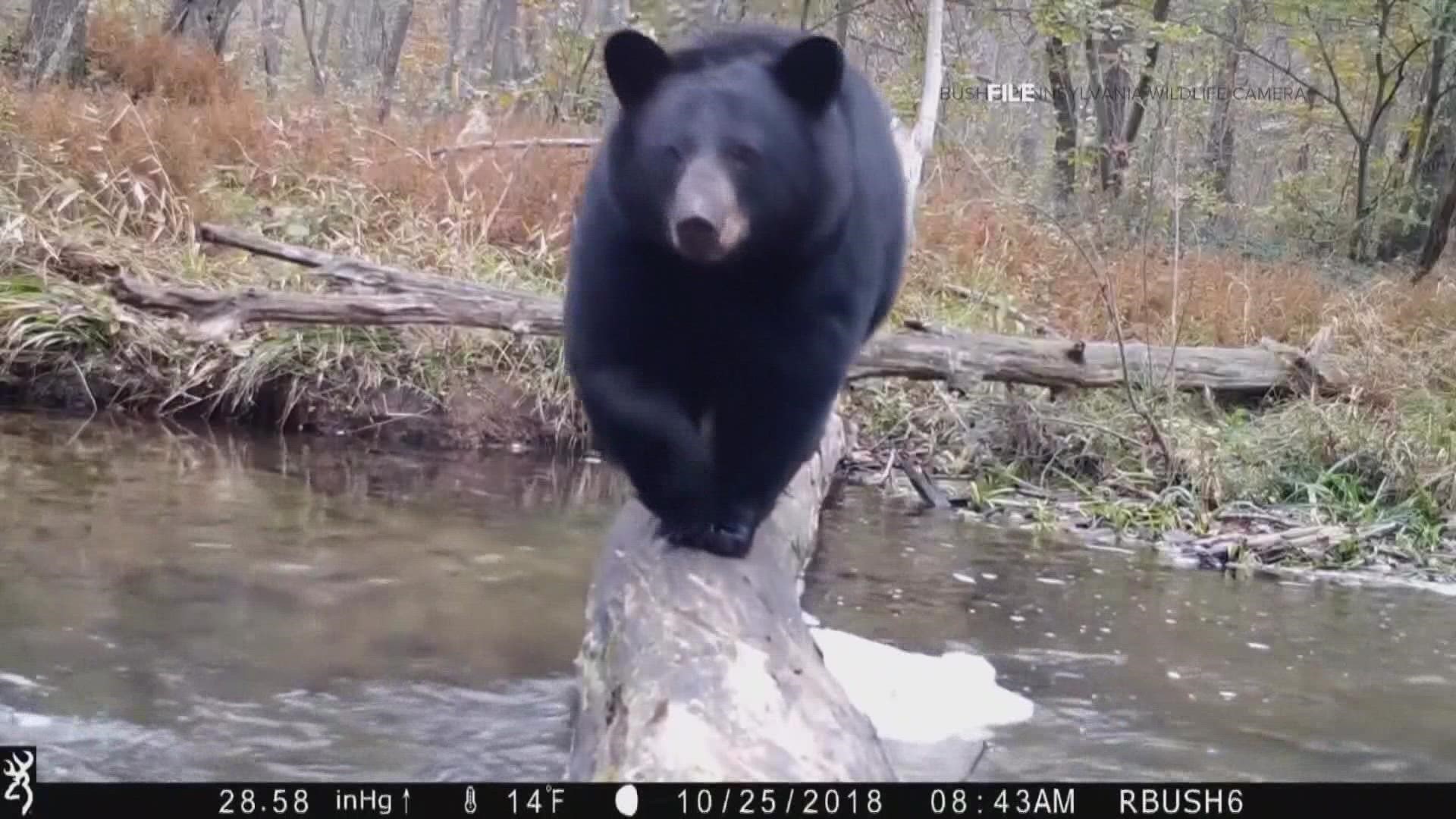MAINE, USA — Katmai National Park & Preserve in Alaska is once again holding its yearly tradition of Fat Bear Week, in which hundreds of thousands of online fans vote for their favorite bulked-up bears.
Brown bears in Alaska can be twice the size of Maine black bears when they begin their hibernation. But that doesn't mean Maine bears aren't bulking up for the winter too. Once bears go into hibernation, they rarely eat or drink until they emerge from their dens in the spring.
“A bear hibernates because it’s a strategy for them to get by during times of the year when food is less available," Maine black bear biologist Jen Vashon told NEWS CENTER Maine. "Many other animals – smaller-bodied animals – hibernate because of the cold temperatures and trying to get through a period of cold temperatures.”
Vashon said she expected the summer drought in many parts of the state to impact bears' food supply this year, and it has -- particularly when it comes to berries. But the overall food supply is only slightly below average.
"Although [the drought] affected some food levels like the berries, [which] were not as good this year, some of our nut crops in certain parts of the state are doing pretty well," Vashon said.
In a year when food is scarce, bears may head to their dens as early as Sept. 1, according to Vashon.
"They have an internal clock that tells them, 'I'm wasting more energy trying to find food, so I'm going to reserve all the food that I can by entering the den earlier,'" she explained. "And then in a good food year, when there's a lot of natural foods out there, they'll den later."
Fall foods are especially important to pregnant female black bears who need sufficient fat stores for their cubs. Although black bears breed in the summer, fetal development doesn't occur until early winter, after the female has gone into a den. In January and February, female bears give birth to one to four cubs inside the winter den, according to the Maine Department of Inland Fisheries and Wildlife.
If a female bear is unable to store enough body fat prior to entering the den, the pregnancy is terminated, making food intake all the more important as the animals head into the winter months. The Maine Department of Inland Fisheries and Wildlife said, among newborn bears that don't make it to their first birthday, starvation is a major cause of death.
"When you're a young animal, you're putting all of your energy into growth. And so the animals that are actually the most vulnerable to weight loss during denning are your younger bears because they're putting all their energy into growth," Vashon explained. "Once they reach adulthood, usually it would have to be pretty catastrophic food failure to see starvation occurring during the denning period."
State wildlife officials ask Mainers to report any sick or injured bears or orphaned cubs to local game wardens or regional wildlife biologists, who will then assess whether the bears in question can be captured and rehabilitated at a private rehabilitation facility. Officials warn members of the public not to try to capture these bears.
More NEWS CENTER Maine Stories

